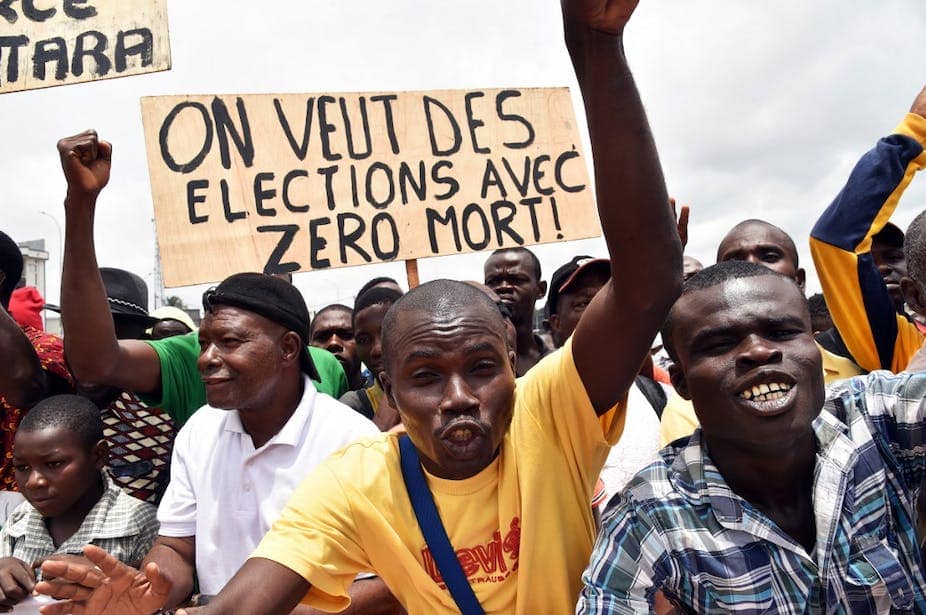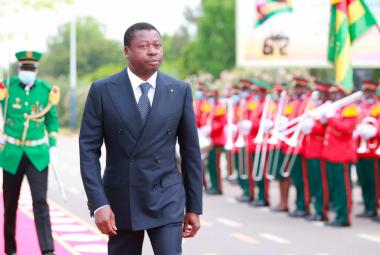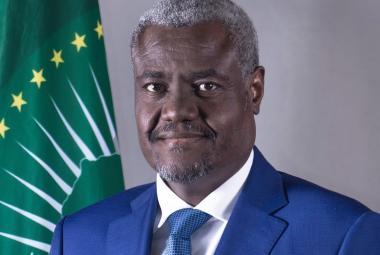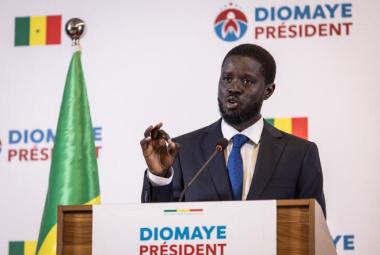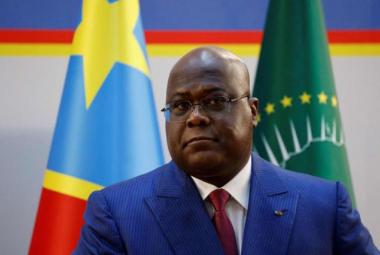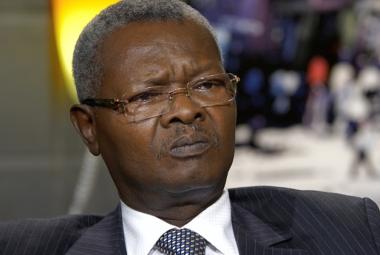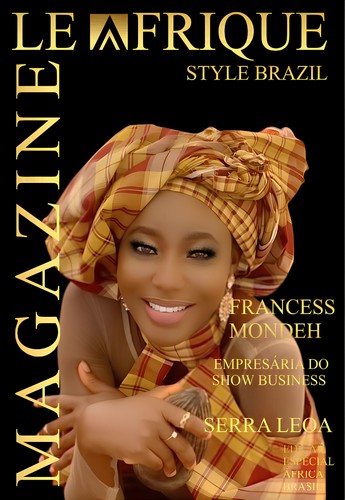Democracy! Everyone talks about it, even claims to act in its name and for its principles, but everyone interprets it as he or she wishes, draws it, sketches it according to his or her own aspirations and under the yoke of his or her own interests... Ah, democracy! As everyone knows how to pervert it, interpret it, recalibrate it, apply it according to his or her will, then evoke it to renounce their duties... You said democracy and the streets of Algiers, Conakry, Bamako, Tunis, Ouagadougou and Khartoum respond to the call for change, before the silence of disillusion resonates in the cottages, a revolution or an insurrection later!
However, democracy must be expressed, executed, lived... Because the power of the people must be expressed and exercised by the people and for the people. This is one of the reasons why September 15 of each year is designated the International Day of Democracy by the United Nations. The establishment of this day aims to examine, each year, the state of democracy in the world, to assess the progress, note the stalling and to activate the necessary advocacy...
But between the facade democracy and the democracy of slogans which have been served to us for many years, beyond the institutional aspect which seems to be summed up for the strong of the moment in elections whose results are often prefabricated, how can we anchor the democratic principle and its universal values in hearts and behavior if it does not induce development? When we talk about the democratic processes underway on the African continent, we cannot help but note these coups d'Etat, constitutional revisions and therefore questioning of the limitation of the number of presidential mandates which punctuate a course of more contrasted over the last three decades. To the point that some still wonder if democracy, finally sick of its turpitudes and intrigues, is not unsuitable for Africa, echoing the antiphon of Jacques Chirac, former French President now deceased, who proclaimed in 1990 that… “democracy is a luxury for Africans”!
DEMOCRACY CAN NOT BE DECLARED...
However, one must remember that six years later, thanks to the memorable speech he delivered on July 18, 1996 in Brazzaville, Congo, on the history of Africa and its accession to democracy, the same Jacques Chirac paid a vibrant tribute to the Black continent, specifying the contours of his vision of democracy. Africa, he notably indicated, is “a free continent, rich in ancient and powerful traditions, in fertile values of civilization. Less than elsewhere, democracy is not exported there, is not imposed there, is not decreed there. More than anywhere else, it must be felt there, acclimatized, rooted. More than ever, Africa needs democracy, a source of stability, confidence and solidarity.”
Also, affirms Jacques Chirac, “we do not have to give him a lesson in democracy. At most, we can inspire in it, when necessary, a desire for democracy, show it the paths open to it and the progress that democratic openness naturally entails. We can then, through our support and encouragement, accompany it wherever Africans have made the choice of democracy themselves.”
It would be unfair to say today that the desire for democracy has not animated public opinion and the African political class since the beginning of the 1990s. After Benin Republic and La Baule, national conferences have spread across the continent to turn our backs on the mono-partisan regimes of the time, with a mixture, it is true, of French injunction, but also of real aspiration for the freedom of African citizens. These national conferences notably concerned, apart from Benin Republic in February 1990, Gabon, from March 1 to April 19, 1990, Congo, from February 25 to June 10, 1991, Mali in August 1991, Togo from July 8 to 28 August 1991, Niger from July 29 to November 1991, Zaire, today Democratic Republic of Congo, from August 7, 1991 to March 17, 1993 — almost two years without the consensus that underpinned this conclave being there —, Chad from January 15 until March 1993. And then there were opposition groups in the Central African Republic, Cameroon, Madagascar, Burkina Faso and Mauritania, who requested national conferences, with varied results.
Today, thirty-three years after this democratic spring, several African countries seem to have returned to square one, since legal-political bickering has derailed the trajectory begun in 1990. Even the fruits of the "Arab Spring" of The beginning of the 2010 decade, which swept away the old regimes of Tunisia and Egypt in particular, did not keep the promise of flowers. The shortcomings were therefore not far away and this matter of term limits also quickly had its detractors. One has thus witnessed constitutional revisions here and there to unlock this cursed padlock. To the point that Niamey, the capital of Niger Republic, hosted, from October 2 to 4, 2019, a summit on constitutionalism and the limitation of presidential mandates in Africa.
However, the resolutions of this summit had no effect since, since then, Alpha Condé has decided to run for a third term in Guinea, just like Alassane Ouattara in Ivory Coast. In addition, a series of coups d'Etat has thrown a big wrench into the pond of democracy under construction on the continent, and one wonders about the contaminating effects of this mode of taking power by force of arms that one thought were over. After Mali on August 20, 2020, then May 21, 2021, Chad, April 21, 2021, Guinea, September 5, 2021, Sudan, October 25, 2021, Burkina Faso, January 24, then September 30 2022, Niger Republic and Gabon have just registered on this register, respectively on July 26 and August 30, 2023.
CONSTITUTIONALISM AND COUPS D’ETAT
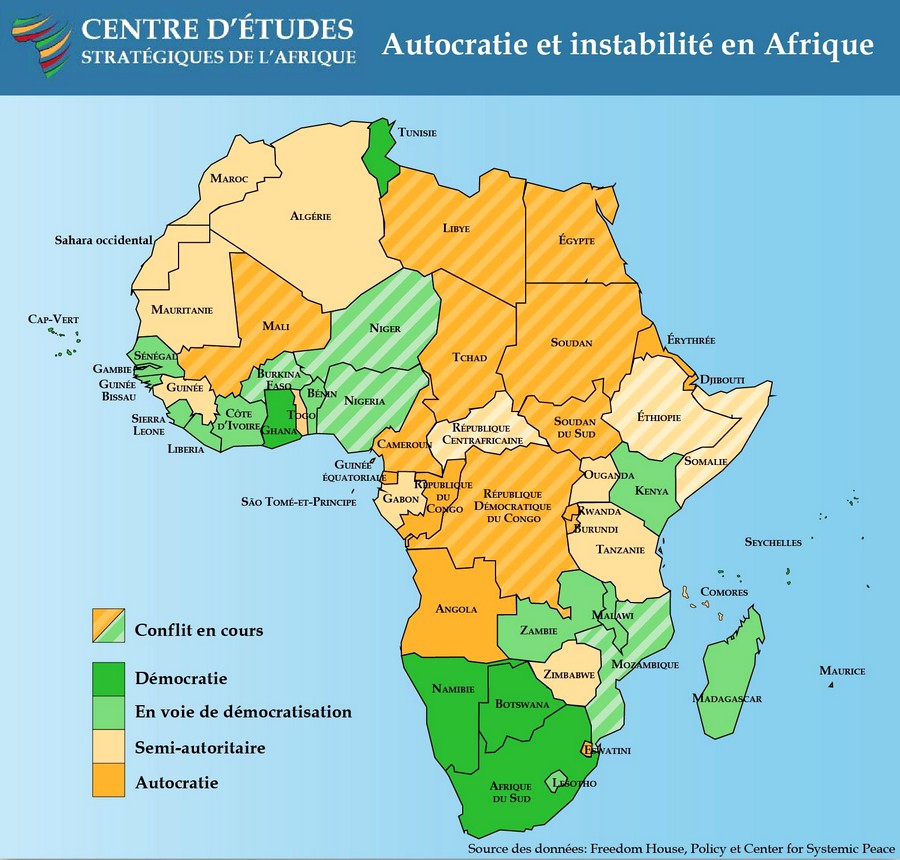
This strong return of military powers on the continent, which carries new generation political transitions with rather long periods on promises of refoundation, constitutes a serious snub to the increasingly criticized democratic processes. It also marks the failure of the summit on constitutionalism and the limitation of presidential mandates in Africa, which was held from October 2 to 4, 2019 in Niamey, Niger Republic.
Initiated by the National Democratic Institute (NDI) and its partners, notably the Kofi Annan Foundation, Open Society Initiative for West Africa (Osiwa) and the Africa Forum, this summit nevertheless noted that one is witnessing a democratic decline following to untimely constitutional changes, which removed the lock on term limits adopted during the democratic renewal of the 1990s. Several former Heads of State took part in this summit which ended with the adoption of a declaration, known as Niamey, as a plea in favor of limiting presidential mandates on the continent.
This meeting therefore aimed to consolidate democracy and the peaceful transfer of power on the continent, in particular through respect for the limitation of the number of presidential mandates established by most Constitutions in Africa. The former Head of State of Benin Republic, Nicéphore Dieudonné Soglo, first President of the Beninese democratic renewal of the post-national conference era, particularly stressed the importance of respecting this measure “so that the African renaissance becomes a reality”.
The first country to enshrine this limitation of presidential mandates in its Constitution adopted at the end of the unprecedented National Conference of Active Forces of February 1990 - the very first to take place on the African continent, even before the famous 16th France-Africa summit which took place held in La Baule, and during which French President François Mitterrand conditioned development aid on the establishment of democratic regimes on June 20, 1990 — Benin Republic was turning its back on several decades of chaotic political life. After the internal struggles of rival camps and the corporatization of national public life by personal and selfish interests, it was more than time to open the political field to other currents in order to promote alternation...
Benin Republic can still be proud today of having succeeded, despite the difficulties which punctuated the experience, of being one of the only countries in West Africa - with Senegal and Cape Verde -, where in addition there has been no military coup d'Etat since the independence of these countries - to respect this clause limiting presidential mandates since 1991, and to have thus renewed four times in 30 years, its leader of the State: Nicéphore Dieudonné Soglo (1991-1996), Mathieu Kérékou (1996-2006), Thomas Boni Yayi (2006-2016), Athanase Guillaume Patrice Talon (since 2016 and normally until 2026). Patrice Talon has also strengthened the provisions of the limitation by introducing, under the terms of article 42 of the Constitution revised on November 7, 2019, the mention that in no case, “no one can, in their life, exercise more of two terms as President of the Republic”. Which excludes the possibility of completing two five-year terms at the head of state, observing a parenthesis and then returning triumphant five or ten years later...
An African exception comes from Mozambique, where the Constitution allows you to reset the counters and be eligible for other mandates once you have left power after your second mandate for at least a five-year mandate.
HOWEVER!
It is still good to note that the picture is not so dark. Special mention also goes to Ghana, which stands out on the continent in terms of alternation at the Head of State. Since the advent of the Fourth Republic in 1992, no less than five Presidents have already succeeded one another at the head of the country. Between 1990 and February 2018, we learn in the work of international civil servant Issaka Souaré entitled “Opposition political parties in Africa: the quest for power”, 21 African Heads of State left power after having exhausted their constitutional mandates. To these 21 Heads of State who insisted on respecting the provisions of the Basic Law of their countries in this area, we must notably add the departures of Uhuru Kenyatta to Kenya (April 9, 2013 to September 13, 2022), and Mahamadou Issoufou in Niger Republic (April 7, 2011 to April 2, 2021), the latest winner of the Mo Ibrahim Prize for Governance.
“To leave is to die a little,” says the French novelist and journalist Edmond Haraucourt in his poem Le Rondel de l’adieu published in 1890. And it is precisely to ensure a dignified post-presidency for our leaders that the Foundation Since 2007, Mo Ibrahim has initiated the Mo Ibrahim Prize for excellent leadership in Africa. This prize thus highlights “the work in the public interest or his action in favor of sustainable development of a former head of state or government of a sub-Saharan African country, who left office during of the last three years”. It comes with a nice prize pool of five million dollars as well as an annual lifetime pension of $200,000, doubled if the former leader founds a charity.
However! “Too many African Heads of State believe themselves to be irreplaceable,” confesses Mo Ibrahim, who seems disappointed by the absence, in certain years, of worthy leaders to deserve this great reward. Indeed, after four years during which he praised the work and work of the Mozambican Joaquim Chissano, who was the first winner in 2007, followed by the Botswanan Festus Mogae in 2008, we had to wait until 2011 to award the Cape Verdean Pedro Worse. Another slump until 2014, with the coronation of the Namibian Hifikepunye Pohamba. Before he rewarded Ellen Johnson Sirleaf, former President of Liberia, in 2017. The last winner of this prize is… Mahamadou Issoufou, awarded for the year 2020, for having peacefully passed the baton to Mohamed Bazoum at the end of his two five-year term at the head of Niger Republic.
QUESTIONING
In any case, indicates Issaka Souaré, Africa had, in 2017, 35 countries which limit the number of mandates of their President, 12 countries which have no term limitation clause in their Constitutions and six countries which have abolished the limitation of the mandate of their constitutions. Furthermore, two countries — Rwanda and Congo-Brazzaville — amended their Basic Laws and the term limitation provision, while four countries abolished the limitation clause before reinstating it.
However, the limitation of presidential terms does not necessarily offer a guarantee for alternation and some even think that it does not constitute a guarantee of democratic success and development. Should we free ourselves from this straitjacket and let the people decide whether or not to reappoint their leaders to the polls? How can democracy impact the daily lives of rural populations, for example, who do not know much about this institutional architecture? How can we promote integrity and good governance, which are also real pillars of democratic exercise? What should democracy in Africa ultimately be based on? Should we reread and reformat democracy as it is practiced on the continent? More than thirty years after the national conferences, should we convene the States General of Africa to think of a new model of institutional functioning?
Many questions to which the changes currently underway on the continent should find adequate answers, keeping in mind that the majority of Africa aspires to democracy, freedom and development.
The Afrobarometer institute, which compiled data from 36 countries on the issue in 2021-2022, reveals that 66%, or two thirds of Africans, “prefer democracy to any other form of government”, while “78% reject single-party regimes and 67% reject military regimes. Also note that 67% of respondents are in favor of media freedom, while “73% of Africans approve of limiting the number of presidential terms.”
Data that sheds light on the desires for democracy, alternation and freedom in these times when Africa is once again seeking its bearings, between refoundation, resurgence of coups d'Etat, fight against terrorism and multiform and multidimensional crises...
© Serge Mathias Tomondji
Ouagadougou, September 21, 2023
*This article has been translated from French into English by Marcus Boni Teiga



